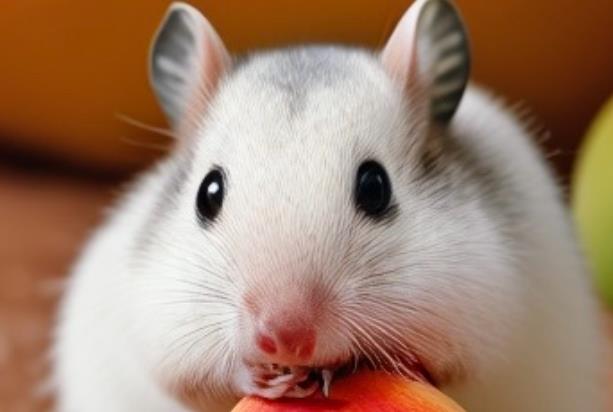There may be the following hazards when keeping pet hamsters:
1. Disease Transmission: Hamsters may carry and spread certain diseases, such as the plague, hantavirus, Salmonella infection, Clostridium tetani, and Listeria, etc. These diseases pose a threat to human health, especially when hamsters bite people or when people come into contact with their excrement. Therefore, when keeping hamsters, special attention should be paid to hygiene and protection to avoid being bitten or coming into contact with substances that may carry pathogens.

2. Allergic Reactions: The hair, dander, etc. of hamsters can become allergens, causing some people to have allergic reactions like sneezing, a runny nose, itchy skin, and so on. For people with allergic constitutions, keeping hamsters may trigger allergic diseases.
3. Accidental Injuries: Hamsters have relatively strong wild instincts and are quite aggressive, and they are prone to biting their owners. After being bitten, it may not only lead to infections but also bring pain and psychological pressure. Besides, if hamsters are not kept in cages, they may run around the house, biting and damaging furniture or other items.
4. Disturbing Rest: Hamsters are nocturnal animals. At night, they may bite the cage, eat food, and make noises that could affect the owner's rest and sleep.
5. Rapid Reproduction: Hamsters have an extremely strong reproductive ability. If not controlled, their numbers will increase rapidly. This will not only increase the difficulty and cost of raising them but may also have a negative impact on the home environment.
6. Short Lifespan: Hamsters have a relatively short lifespan. The longest they can live is usually two to three years. This may cause certain emotional distress to the owners, especially for those who have devoted a lot of affection and energy to their pets.
7. Economic Burden: Keeping hamsters requires purchasing cages, food, toys and other accessories, which will increase the economic burden. Moreover, if hamsters get sick or injured, medical expenses will also need to be paid.
To reduce these hazards, the following points should be noted when keeping hamsters:
Choose a spacious, well-ventilated, dry and safe cage as the living environment for hamsters.
Regularly clean the cage to maintain environmental hygiene and prevent hamsters from coming into contact with substances that may carry pathogens.
Pay attention to observing the behavior and condition of hamsters. If any abnormalities are found, take timely measures, such as seeking medical treatment or adjusting the rearing environment.
For people with allergic constitutions, be especially cautious about keeping hamsters to avoid triggering allergic diseases.
If hamsters show aggressive behaviors, correct and train them in a timely manner to avoid them biting the owners.
Control the reproductive number of hamsters to avoid problems caused by excessive numbers.
In conclusion, when keeping pet hamsters, it is necessary to fully understand their potential hazards and take corresponding preventive measures. If you are unsure about how to raise hamsters safely, it is recommended to consult professional veterinarians or pet-raising experts.
